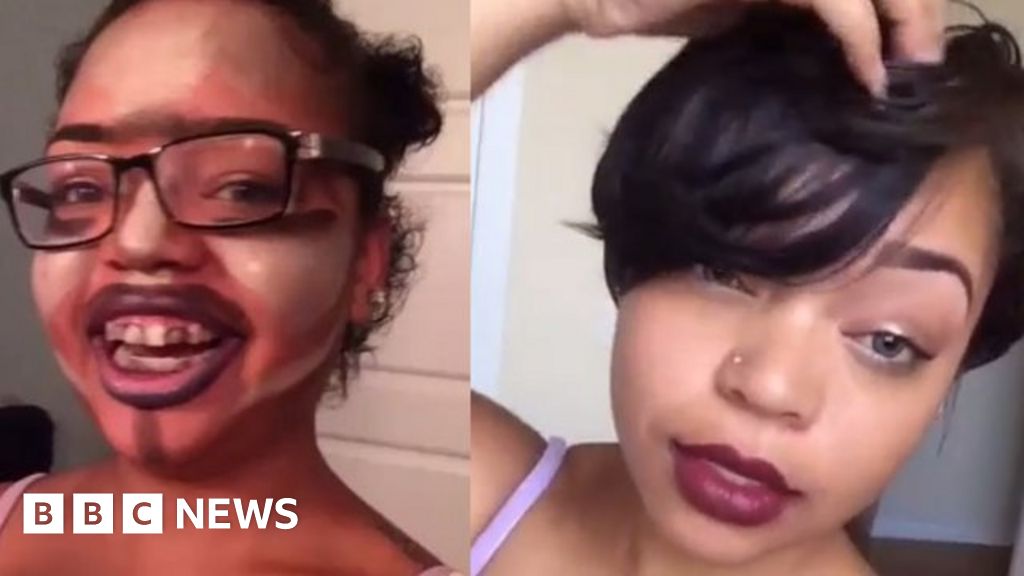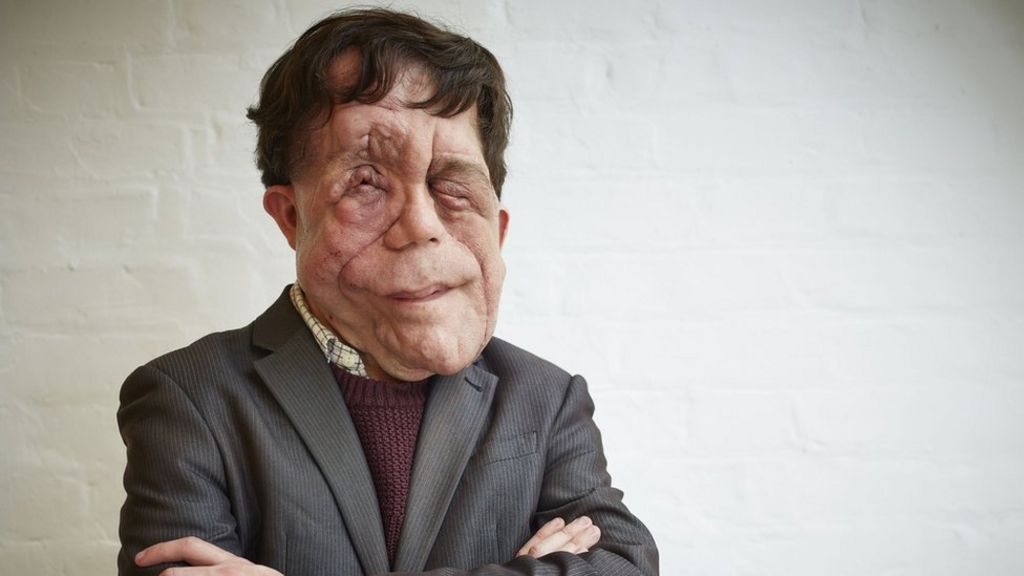Who Is The Most Ugly Person In The World? A Thought-Provoking Look Beyond Appearances
Let’s be real here, the question "who is the most ugly person in the world" might sound a bit harsh or even offensive at first glance. But stick with me for a sec, because this topic is deeper than you think. It’s not just about physical appearances; it’s about societal standards, self-perception, and how we define beauty and ugliness. So, if you’re curious about diving into a conversation that’s both uncomfortable and enlightening, you’ve come to the right place. This isn’t just about finding answers—it’s about questioning the questions themselves.
Now, let’s break it down. When people ask about the "most ugly person in the world," they’re often influenced by media narratives, cultural biases, or even memes. But have you ever stopped to think about why we even care? Is it because we’re genuinely curious, or is it because we’ve been conditioned to judge others based on their looks? Spoiler alert: it’s probably the latter. So, before we dive into the nitty-gritty, let’s agree to approach this topic with an open mind and a dash of empathy, yeah?
Here’s the thing—ugliness, like beauty, is subjective. What one person finds unattractive, another might find fascinating. And that’s the beauty (ironic, right?) of it all. This article isn’t here to name names or point fingers. Instead, it’s here to explore the concept of ugliness, challenge societal norms, and maybe—just maybe—change the way you think about it. Ready? Let’s go.
Read also:Exploring The Best Mark Pellegrino Shows A Journey Through His Career
Table of Contents
- Biography of the Controversial Figure
- Defining Ugliness: More Than Skin-Deep
- Cultural Perception of Ugliness
- The Role of Media in Shaping Beauty Standards
- A Scientific Perspective on Ugliness
- The Emotional Impact of Being Labeled "Ugly"
- A Historical Context of Ugliness
- Psychological Effects of Negative Labeling
- Celebrating Diversity in Beauty
- Conclusion: Redefining Ugliness
Biography of the Controversial Figure
Before we dive into the philosophical side of things, let’s talk about the person often associated with this controversial title. While there’s no definitive answer to who the "most ugly person in the world" is, one name that frequently pops up is Lizzie Velasquez. Born in 1989 in Texas, Lizzie has a rare condition called neonatal progeroid syndrome, which affects her physical appearance. Despite facing relentless bullying and being labeled as "the world’s ugliest woman" in an online video, Lizzie has turned her life into a powerful message of self-acceptance and inner beauty.
Biodata of Lizzie Velasquez
| Full Name | Lizzie Velasquez |
|---|---|
| Date of Birth | July 7, 1989 |
| Place of Birth | Austin, Texas, USA |
| Condition | Neonatal Progeroid Syndrome |
| Profession | Speaker, Author, Motivational Speaker |
But here’s the kicker—Lizzie isn’t defined by her appearance. She’s an author, motivational speaker, and advocate for body positivity. Her story is a testament to the fact that beauty isn’t just skin-deep. It’s about resilience, courage, and the ability to rise above societal expectations. So, the next time someone mentions her name in this context, remember that there’s so much more to her than meets the eye.
Defining Ugliness: More Than Skin-Deep
Alright, let’s get real for a moment. What exactly is ugliness? Is it something we can measure with a ruler or a scale? Or is it more of a feeling, a perception shaped by our environment and experiences? The truth is, ugliness isn’t as straightforward as we think. It’s a complex concept that varies from person to person, culture to culture.
For some, ugliness might mean physical imperfections. For others, it could be tied to personality traits or behaviors. But here’s the thing—ugliness isn’t inherently bad. In fact, it’s what makes us unique. Think about it. If everyone looked the same, acted the same, and thought the same, life would be pretty boring, right?
Breaking Down the Stereotypes
- Ugliness is often associated with negativity, but it doesn’t have to be.
- Societal standards of beauty are constantly changing, which means what’s considered "ugly" today might be celebrated tomorrow.
- Embracing our imperfections is key to true self-acceptance.
Cultural Perception of Ugliness
Let’s talk about culture for a second. Different cultures have different ideas about what’s beautiful and what’s not. For example, in some African tribes, scars are seen as a sign of beauty and strength. In contrast, Western societies often view scars as imperfections that need to be hidden. See the difference?
This highlights the importance of understanding cultural context when discussing topics like ugliness. What one culture finds unattractive, another might find fascinating. It’s all about perspective, my friend.
Read also:Gwinnett County Dmv Your Complete Guide To Services Locations And More
The Role of Media in Shaping Beauty Standards
Now, let’s talk about the elephant in the room—the media. Whether we like it or not, the media plays a huge role in shaping our perceptions of beauty and ugliness. From Instagram filters to Hollywood blockbusters, we’re constantly bombarded with images of "perfect" people. But here’s the thing—none of it is real. Those pictures are edited, those bodies are airbrushed, and those smiles are Photoshopped. So, why do we still compare ourselves to them?
The media’s portrayal of beauty isn’t just misleading—it’s harmful. It sets unrealistic standards that no one can live up to. But the good news is, we’re starting to see a shift. More and more people are speaking out against these standards and embracing their true selves. And that’s a beautiful thing.
A Scientific Perspective on Ugliness
Okay, let’s get nerdy for a moment. From a scientific standpoint, ugliness can be linked to evolutionary biology. Back in the day, humans were wired to seek out mates with "perfect" features because they were seen as indicators of good health and fertility. But in today’s world, those same traits don’t necessarily apply. In fact, some studies suggest that people with "imperfect" features are perceived as more trustworthy and approachable.
So, the next time you catch yourself judging someone based on their looks, remember that it’s not just about aesthetics. There’s a whole lot more going on beneath the surface.
The Emotional Impact of Being Labeled "Ugly"
Let’s not sugarcoat it—being labeled as "ugly" can have a devastating impact on a person’s mental health. Imagine living in a world where people judge you solely based on your appearance. It’s not easy, and it’s not fair. But here’s the thing—labels don’t define us. They’re just words. What matters is how we choose to respond to them.
Take Lizzie Velasquez, for example. Instead of letting the negativity bring her down, she used it as fuel to inspire others. She’s proof that inner beauty is way more powerful than any external judgment.
A Historical Context of Ugliness
Throughout history, the concept of ugliness has evolved. In ancient times, people with physical deformities were often seen as outcasts. But as societies progressed, so did our understanding of beauty and ugliness. Today, we’re more accepting of diversity and individuality. It’s a slow process, but it’s progress nonetheless.
But here’s the thing—history repeats itself. We still see echoes of those old prejudices in modern society. The key is to learn from the past and strive for a better future. And that starts with changing the way we view others.
Psychological Effects of Negative Labeling
Negative labels can have long-lasting effects on a person’s psyche. They can lead to low self-esteem, anxiety, and even depression. But here’s the good news—therapy and self-care can help. By focusing on their strengths and surrounding themselves with positive influences, people can overcome the stigma and thrive.
It’s all about mindset, my friend. If you believe in yourself, no one else’s opinion matters. And that’s a powerful realization.
Celebrating Diversity in Beauty
Finally, let’s talk about celebrating diversity. Beauty isn’t one-size-fits-all. It’s a spectrum, and everyone has a place on it. Whether you have freckles, scars, or a unique feature that sets you apart, embrace it. It’s what makes you, well, you.
And while we’re at it, let’s stop comparing ourselves to others. Comparison is the thief of joy, and it’s time we all realized that. Instead of focusing on what makes us different, let’s celebrate those differences. After all, life’s a lot more colorful when we embrace diversity.
Conclusion: Redefining Ugliness
In conclusion, the question "who is the most ugly person in the world" is more complex than it seems. It’s not just about physical appearances—it’s about societal norms, cultural perceptions, and personal beliefs. By challenging these norms and embracing diversity, we can redefine what it means to be beautiful.
So, the next time you catch yourself judging someone based on their looks, take a step back and ask yourself why. Is it because of societal pressure, or is it because you genuinely believe it? The answer might surprise you.
And remember, beauty isn’t just skin-deep. It’s about who you are on the inside, how you treat others, and how you carry yourself through life. So, let’s stop focusing on appearances and start celebrating the things that truly matter. Sound good?
Oh, and before you go, drop a comment below and let me know what you think about this topic. I’d love to hear your thoughts! And if you enjoyed this article, don’t forget to share it with your friends. Let’s keep the conversation going.


